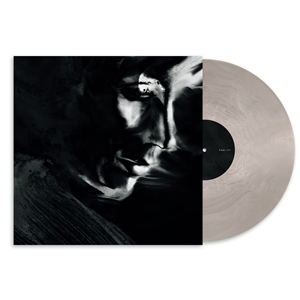catalogue
DEAR, MATTHEW
BLACK CITY (GHOSTLY 25 YEAR ANNIVERSARY EDITION) (GHOSTLY INTERNATIONAL)

format:
1 LP
release:
15.11.2024
label:
GHOSTLY INTERNATIONAL
genre:
Electro/Funk
item ID:
166963
Transparent Silve Vinyl. On the occasion of Ghostly's 25th Anniversary and Black City's 15th Anniversary, Ghostly and Matthew Dear present a special Transparent Silver vinyl repressing.
Released in 2010, nearly a decade into his craft, Black City was a watershed moment for Matthew Dear.
A steely noir set that straddled electronic dance and indie rock classification, earning him Best New Music from Pitchfork and a worldwide tour with a besuited band, the album unlocked Dear's darkest and most engrossing ideas to date.
The love-obsessed songwriter of 2007's Asa Breed had given way to a more existentially paranoid entity.
Creeping disco tempos, cavernous atmospherics, and strange distortions brought his signature avant-pop sound to a moodier place.
Black City wasn't to be found on any map. It was a composite, an imaginary metropolis peopled by desperate cases, lovelorn souls, and amoral motives, with flashes of sweetness and hope.
In Black City, nothing is at it seems: leadoff single "Little People (Black City)" is a nine-and-a-half minute disco odyssey, subverting its gleaming electronic lead with eerily giddy backing vocals and cryptic, ominous lyrics ("a frozen wasted heart / has died", "love me like a clown"); "You Put a Smell on Me" is a sordid sex romp set to hysterically chattering percussion and a serrated synth line that will set your teeth on edge; "More Surgery" at first recalls the barely-there Krautrock of Harmonia in its burbling minimalism, until Dear's chanted chorus of "Alter genetics / to make my body glow / I need more surgery / there's so much more to know" sends the track hurtling into a dystopian future.
And yet, for all the foreboding moods on Black City, it's the album's sweeter moments that illustrate Matthew Dear's growing maturity as a songwriter.
"Slowdance" is a futuristic lullaby in which Dear articulates a lover's helplessness ("I can't be the one to tell you everything's wrong") over breathy, Arthur Russell-esque cello swishes; the album-closing "Gem" is an achingly simple, reverb-drenched piano ballad that ends with a long, slow fade.
Released in 2010, nearly a decade into his craft, Black City was a watershed moment for Matthew Dear.
A steely noir set that straddled electronic dance and indie rock classification, earning him Best New Music from Pitchfork and a worldwide tour with a besuited band, the album unlocked Dear's darkest and most engrossing ideas to date.
The love-obsessed songwriter of 2007's Asa Breed had given way to a more existentially paranoid entity.
Creeping disco tempos, cavernous atmospherics, and strange distortions brought his signature avant-pop sound to a moodier place.
Black City wasn't to be found on any map. It was a composite, an imaginary metropolis peopled by desperate cases, lovelorn souls, and amoral motives, with flashes of sweetness and hope.
In Black City, nothing is at it seems: leadoff single "Little People (Black City)" is a nine-and-a-half minute disco odyssey, subverting its gleaming electronic lead with eerily giddy backing vocals and cryptic, ominous lyrics ("a frozen wasted heart / has died", "love me like a clown"); "You Put a Smell on Me" is a sordid sex romp set to hysterically chattering percussion and a serrated synth line that will set your teeth on edge; "More Surgery" at first recalls the barely-there Krautrock of Harmonia in its burbling minimalism, until Dear's chanted chorus of "Alter genetics / to make my body glow / I need more surgery / there's so much more to know" sends the track hurtling into a dystopian future.
And yet, for all the foreboding moods on Black City, it's the album's sweeter moments that illustrate Matthew Dear's growing maturity as a songwriter.
"Slowdance" is a futuristic lullaby in which Dear articulates a lover's helplessness ("I can't be the one to tell you everything's wrong") over breathy, Arthur Russell-esque cello swishes; the album-closing "Gem" is an achingly simple, reverb-drenched piano ballad that ends with a long, slow fade.
Customer Login
Our Extranet moved to:
https://extranet.375media.com
- Tracklisting
 1.1. HONEY
1.1. HONEY 1.2. I CAN'T FEEL
1.2. I CAN'T FEEL 1.3. LITTLE PEOPLE (BLACK CITY)
1.3. LITTLE PEOPLE (BLACK CITY) 1.4. SLOWDANCE
1.4. SLOWDANCE 1.5. SOIL TO SEED
1.5. SOIL TO SEED 1.6. YOU PUT A SPELL ON ME
1.6. YOU PUT A SPELL ON ME 1.7. SHORTWAVE
1.7. SHORTWAVE 1.8. MONKEY
1.8. MONKEY 1.9. MORE SURGERY
1.9. MORE SURGERY 1.10. GEM
1.10. GEM




